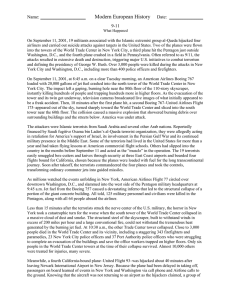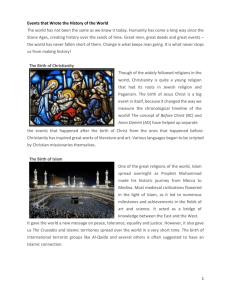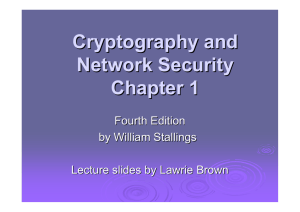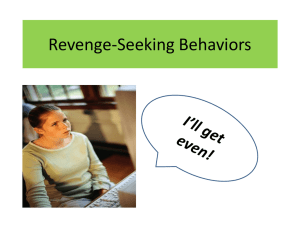Source 1
advertisement
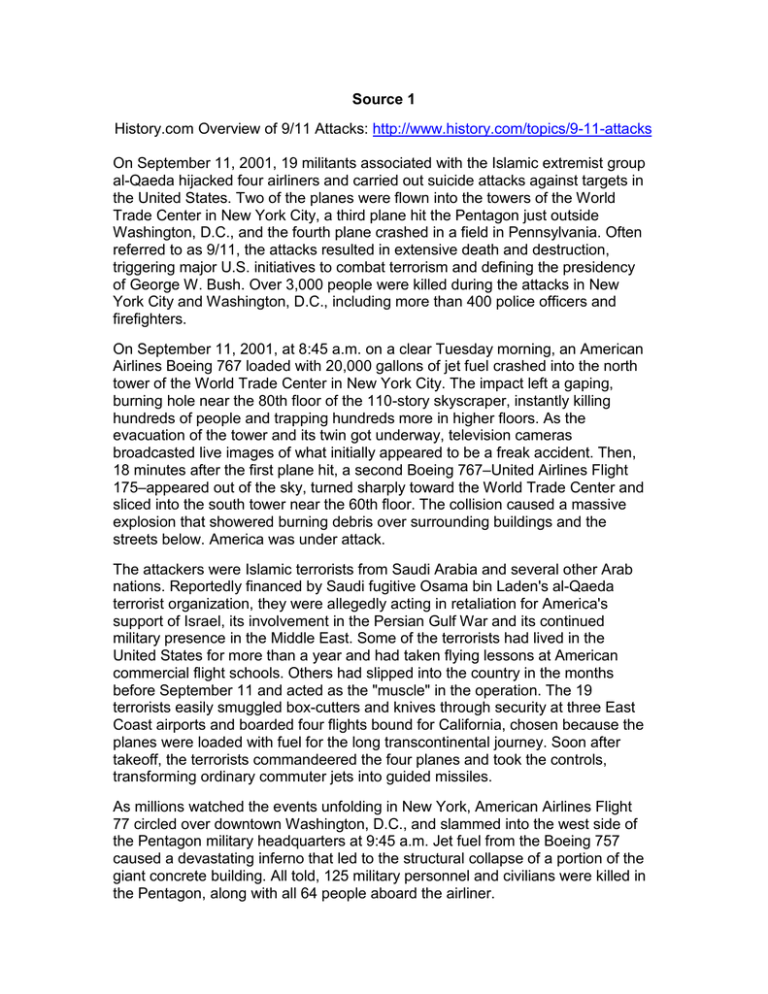
Source 1 History.com Overview of 9/11 Attacks: http://www.history.com/topics/9-11-attacks On September 11, 2001, 19 militants associated with the Islamic extremist group al-Qaeda hijacked four airliners and carried out suicide attacks against targets in the United States. Two of the planes were flown into the towers of the World Trade Center in New York City, a third plane hit the Pentagon just outside Washington, D.C., and the fourth plane crashed in a field in Pennsylvania. Often referred to as 9/11, the attacks resulted in extensive death and destruction, triggering major U.S. initiatives to combat terrorism and defining the presidency of George W. Bush. Over 3,000 people were killed during the attacks in New York City and Washington, D.C., including more than 400 police officers and firefighters. On September 11, 2001, at 8:45 a.m. on a clear Tuesday morning, an American Airlines Boeing 767 loaded with 20,000 gallons of jet fuel crashed into the north tower of the World Trade Center in New York City. The impact left a gaping, burning hole near the 80th floor of the 110-story skyscraper, instantly killing hundreds of people and trapping hundreds more in higher floors. As the evacuation of the tower and its twin got underway, television cameras broadcasted live images of what initially appeared to be a freak accident. Then, 18 minutes after the first plane hit, a second Boeing 767–United Airlines Flight 175–appeared out of the sky, turned sharply toward the World Trade Center and sliced into the south tower near the 60th floor. The collision caused a massive explosion that showered burning debris over surrounding buildings and the streets below. America was under attack. The attackers were Islamic terrorists from Saudi Arabia and several other Arab nations. Reportedly financed by Saudi fugitive Osama bin Laden's al-Qaeda terrorist organization, they were allegedly acting in retaliation for America's support of Israel, its involvement in the Persian Gulf War and its continued military presence in the Middle East. Some of the terrorists had lived in the United States for more than a year and had taken flying lessons at American commercial flight schools. Others had slipped into the country in the months before September 11 and acted as the "muscle" in the operation. The 19 terrorists easily smuggled box-cutters and knives through security at three East Coast airports and boarded four flights bound for California, chosen because the planes were loaded with fuel for the long transcontinental journey. Soon after takeoff, the terrorists commandeered the four planes and took the controls, transforming ordinary commuter jets into guided missiles. As millions watched the events unfolding in New York, American Airlines Flight 77 circled over downtown Washington, D.C., and slammed into the west side of the Pentagon military headquarters at 9:45 a.m. Jet fuel from the Boeing 757 caused a devastating inferno that led to the structural collapse of a portion of the giant concrete building. All told, 125 military personnel and civilians were killed in the Pentagon, along with all 64 people aboard the airliner. Less than 15 minutes after the terrorists struck the nerve center of the U.S. military, the horror in New York took a catastrophic turn for the worse when the south tower of the World Trade Center collapsed in a massive cloud of dust and smoke. The structural steel of the skyscraper, built to withstand winds in excess of 200 miles per hour and a large conventional fire, could not withstand the tremendous heat generated by the burning jet fuel. At 10:30 a.m., the other Trade Center tower collapsed. Close to 3,000 people died in the World Trade Center and its vicinity, including a staggering 343 firefighters and paramedics, 23 New York City police officers and 37 Port Authority police officers who were struggling to complete an evacuation of the buildings and save the office workers trapped on higher floors. Only six people in the World Trade Center towers at the time of their collapse survived. Almost 10,000 others were treated for injuries, many severe. Meanwhile, a fourth California-bound plane–United Flight 93–was hijacked about 40 minutes after leaving Newark International Airport in New Jersey. Because the plane had been delayed in taking off, passengers on board learned of events in New York and Washington via cell phone and Airfone calls to the ground. Knowing that the aircraft was not returning to an airport as the hijackers claimed, a group of passengers and flight attendants planned an insurrection. One of the passengers, Thomas Burnett Jr., told his wife over the phone that "I know we're all going to die. There's three of us who are going to do something about it. I love you, honey." Another passenger–Todd Beamer–was heard saying "Are you guys ready? Let's roll" over an open line. Sandy Bradshaw, a flight attendant, called her husband and explained that she had slipped into a galley and was filling pitchers with boiling water. Her last words to him were "Everyone's running to first class. I've got to go. Bye." The passengers fought the four hijackers and are suspected to have attacked the cockpit with a fire extinguisher. The plane then flipped over and sped toward the ground at upwards of 500 miles per hour, crashing in a rural field in western Pennsylvania at 10:10 a.m. All 45 people aboard were killed. Its intended target is not known, but theories include the White House, the U.S. Capitol, the Camp David presidential retreat in Maryland or one of several nuclear power plants along the eastern seaboard. Source 2 Videos of September 11, 2001 History.com: 9/11 Attacks - 102 Minutes That Changed America, History.com: The Todd Beamer Story “Let’s Roll”, video of United 93 o http://www.history.com/topics/9-11-attacks/videos#the-toddbeamer-story-lets-roll Source 3 Cantigny First Division Oral History Project III Interviewee: Ltc. Steven Hibler, Interviewer: Andrew Luce Time: 30:57-32:53 Date of Interview: November 6, 2012 Lieutenant colonel (Ltc.) Steven Hibler entered the military September 8, 1982 at the age of 22. He has served with various units within the Indiana National Guard, the Michigan National Guard, and is currently a professor of Military Science at Ball State University. Ltc. Hibler’s military occupational specialty (MOS) is military police (MP). He has served during the Gulf War, and in the Balkans and Iraq. His most recent deployment was to Iraq from 2007-2008. Transcript: Luce: Back tracking a little bit, where were you on September 11th? Hibler: Never forget that. That day was a significant day to me. I had just interviewed with the Indiana State Police. I had been a squad leader—probably more or, uh, probably more in policing, like a community policing sergeant—and I had just interviewed for the assistant district command first sergeant position. And I had actually gotten selected for it, which it was supposed to start the following week. But, the lieutenant at the district west of Indianapolis was on vacation, actually bear hunting in Michigan, and so when September 11th happened, the area captain called me up and said, “You are officially—you’re the first sergeant. You get out to the post, take command of the post.” So, on September 11th, I had just left the area high school—putting on a program with the high school—when I heard about the attacks, and instantaneously, I knew. I had just been in Germany in July of 2001, and while we were there, there was a threat, a Bin Laden-type threat, which tightened security while we were there. So, once we heard the second tower got hit, I mean, it was a no-brainer, you figured kinda what was going on. So, I can remember, you got to the state police post, started fielding calls, and, you know, the public was just in an absolute panic. A lot of the phone calls that were coming in—In our area, we’ve got a mosque that has always been of controversy, and a lot of the neighbors from around there were calling to the point I had some little old lady on the phone. The dispatcher says, “Hey first sergeant, come here and take this phone call.” When I took it, this little old lady was convinced Bin Laden was in the basement of the mosque, there, in the—you know, it was just the way the people thought, and, I mean, people were scared. It was—that’s just the time it was. I remember in the days and weeks that followed, you know, the cars flying the American flags, and, you know, the American patriotism, which was like—unlike what we’ve seen in our lifetime. But, the sad part was it seemed like in the weeks and months and years to follow, that all kind of, like, faded, if that makes sense? Analysis Guide 1. Using the first two sources, what are the September 11, 2001 attacks and their significance? 2. Why did the September 11, 2001 attacks take place and who executed them? 3. To what extent did the terrorist attacks on September 11 affect Americans? 4. What type of role did the media play on September 11, 2001? 5. How did you feel after watching videos and media of the terrorist attacks? 6. Why is September 11, 2001 such a vivid memory for Ltc. Hibler? 7. Ltc. Hilber was in Indiana during the terrorist attacks, why did people in the Midwest still react with panic when the attacks were on the East coast? 8. Why do you think Ltc. Hilber said that patriotism faded in the months and years after September 11?
